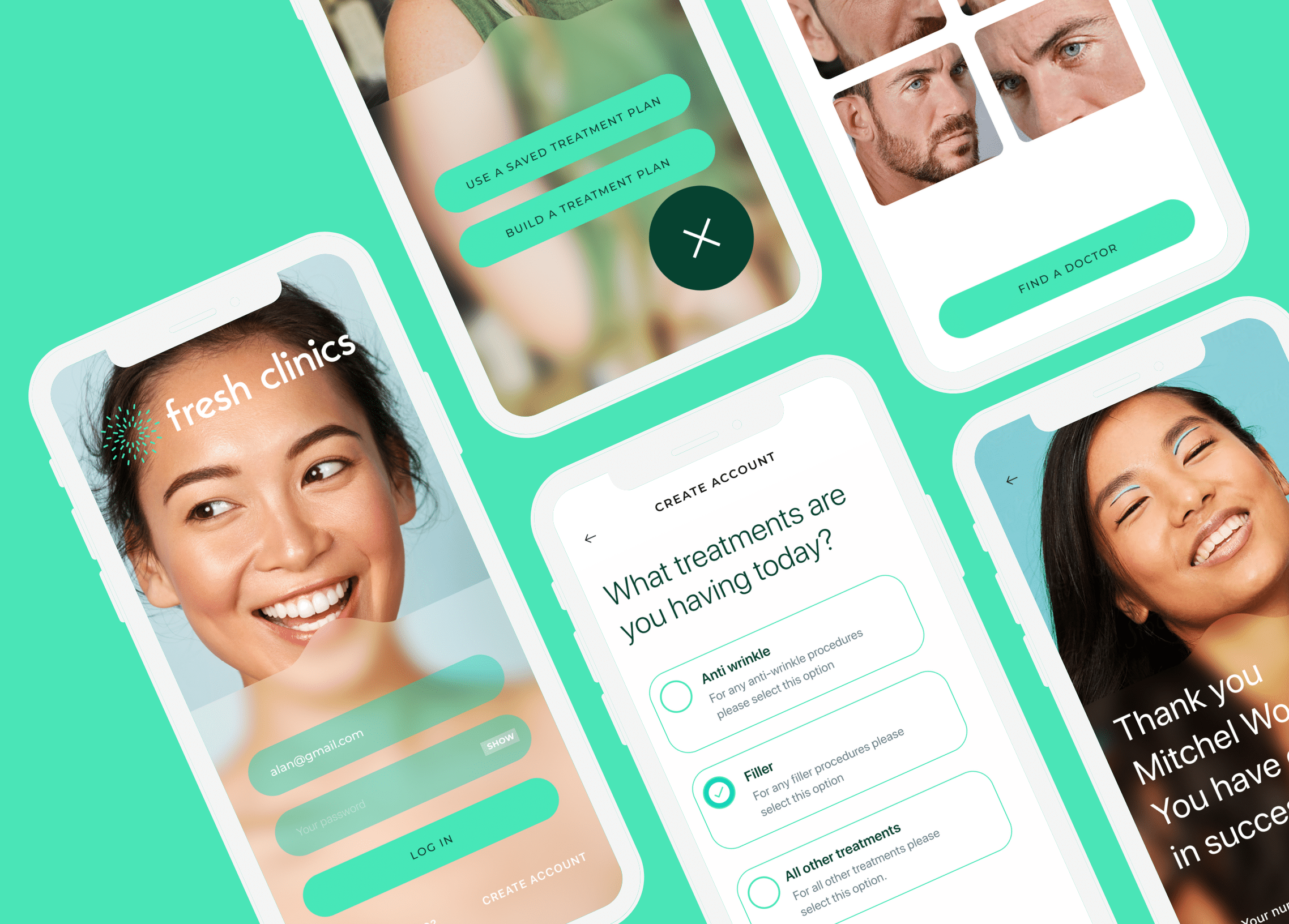Revolutionize Patient Care with a Mobile App for Clinics: Leading Features to Take Into Consideration
Revolutionize Patient Care with a Mobile App for Clinics: Leading Features to Take Into Consideration
Blog Article
The Future of Healthcare: Why Clinics Required a Mobile App Today
As the medical care landscape continues to progress, clinics deal with placing pressure to adjust to person assumptions for greater benefit and ease of access. The combination of mobile applications can offer as a vital approach for boosting client involvement and streamlining procedures.
Changing Individual Expectations
As the landscape of health care evolves, patient assumptions are going through a significant change. Today's clients are increasingly seeking convenience, availability, and customized care.
Additionally, people are coming to be extra educated and empowered, often looking into therapies and conditions on-line prior to assessments. This increased understanding is paired with a demand for transparency in healthcare procedures, including price estimates and therapy choices. As a result, suppliers are urged to adjust by embracing digital devices that improve the client experience.
The assumption for timely and efficient interaction has actually never ever been higher, with lots of people thinking about responsiveness a critical element of high quality treatment. mobile app for clinics. In this developing landscape, medical care companies should acknowledge these transforming expectations and take advantage of mobile applications to cultivate a much more patient-centric method, making certain that they not just meet however exceed the standards set by today's educated customers
Enhancing Individual Engagement

Mobile applications assist in interaction in between clients and doctor, allowing real-time consultation organizing, pointers for medicine adherence, and direct messaging functions. These performances not only boost comfort however also build a sense of responsibility among clients. Mobile applications can supply instructional material tailored to individual needs, assisting patients much better recognize their conditions and treatment choices.
The integration of gamification aspects within healthcare applications can likewise encourage individuals to engage in healthy habits, reinforcing positive way of living modifications. Ultimately, improving person involvement via mobile applications leads to boosted wellness results, greater patient satisfaction, and a more collaborative medical care experience.
Streamlining Facility Operations
Enhancing clinic operations is essential for improving operations effectiveness and maximizing person care. The execution of mobile applications can dramatically reduce management problems, enabling doctor to concentrate much more on person interactions. By automating visit scheduling, patient check-ins, and invoicing processes, centers can lessen wait times and enhance total operational efficiency.
Mobile apps likewise facilitate real-time accessibility to client records, making it possible for health care specialists to make educated decisions promptly. This immediacy not only boosts the high quality of care yet also minimizes the probability of errors associated with lost or obsoleted details. Furthermore, leveraging mobile innovation sustains a much more orderly method to taking care of individual follow-ups and treatment plans, making sure that no important steps are forgotten.
This allows for prompt replenishment and helps stay clear of disturbances in person treatment due to stock shortages. By incorporating these performances into their everyday operations, centers can produce an extra effective and cohesive atmosphere, ultimately leading to improved client results and contentment.
Improving Interaction Networks
Efficient interaction browse around here is frequently pointed out as a keystone of quality healthcare distribution. In today's busy clinical setting, mobile applications can significantly improve communication channels in between clinics, clients, and doctor. By incorporating mobile apps into their operations, clinics can assist in real-time interactions, ensuring that clients receive prompt info concerning their appointments, examination results, and treatment strategies.
Mobile applications likewise empower individuals to connect directly with their health care groups via safe messaging features. This direct line of interaction cultivates a feeling of interaction and enables prompt clarification of worries, which can bring about much better adherence to therapy protocols. Additionally, press alerts can remind people of upcoming appointments or drug timetables, lowering no-show prices and boosting total health and wellness outcomes.

Remaining Competitive in Health Care
In a quickly advancing health care landscape, companies should focus on innovation and versatility to maintain an one-upmanship. The combination of mobile applications right into medical care services is no more optional; it is vital for clinics intending to enhance person engagement, improve operations, and improve overall service shipment.
As patients significantly count on electronic systems for health management, clinics that fall short to adopt mobile modern technology threat dropping behind. A properly designed mobile application can offer functions such as consultation scheduling, telemedicine examinations, and access to clinical documents, find providing patients i thought about this with comfort and promoting loyalty.

Competitors are additionally buying mobile services, so remaining in advance needs continuous improvement and staying informed regarding technical innovations. Facilities should not only execute mobile applications yet likewise involve in routine updates and refinements. Ultimately, the effective assimilation of mobile modern technology will distinguish forward-thinking medical care organizations and set the benchmark for patient-centric care in an electronic world.
Final Thought
Finally, the combination of mobile applications in clinics is crucial to address the progressing landscape of person assumptions. By enhancing individual engagement, streamlining operations, and enhancing communication networks, centers can dramatically increase health and wellness outcomes. Furthermore, the fostering of mobile technology settings centers to remain competitive in an increasingly electronic medical care setting. Eventually, the calculated application of mobile applications stands for a crucial step towards delivering available and customized medical care, thus satisfying the requirements of today's equipped clients.
Ultimately, boosting individual engagement via mobile applications leads to boosted health end results, greater patient contentment, and an extra joint medical care experience.Mobile applications likewise promote real-time accessibility to patient records, enabling healthcare specialists to make informed decisions promptly. In today's hectic clinical setting, mobile applications can significantly improve communication channels in between centers, individuals, and healthcare service providers.Mobile apps likewise encourage individuals to communicate straight with their health care groups through secure messaging features. Inevitably, the calculated implementation of mobile apps represents an essential action towards supplying tailored and easily accessible healthcare, thus meeting the requirements of today's encouraged people.
Report this page